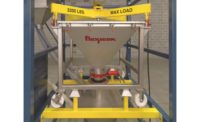Losses Pile Up as IBC Begins Restructuring
As it loses millions of dollars on a monthly basis, Interstate Bakeries Corp. (IBC) has begun the long-awaited massive restructuring of its 10 profit centers that will result in the loss of thousands of jobs and could cost the nation’s largest bakery tens of millions of dollars more to execute.
Interstate hopes to have the exhaustive review of its profit centers completed by the end of the year.
To address continued revenue declines and its high cost structure, IBC announced in April that it began closing antiquated plants, consolidating routes, depots and thrift stores, and rationalizing the number of brands and stock-keeping units (SKUs) in profit centers, starting with its under-performing Florida and mid-Atlantic regions.
Although the restructuring will result in lower sales, IBC’s goal is to end up with a smaller but more profitable business that will allow it to eventually exit from Chapter 11 bankruptcy protection.
“In the long run, we are doing what we must to revitalize the company, preserve jobs and maximize the value of the enterprise for all of our constituencies,” said Tony Alvarez II, IBC’s chief executive and co-chief executive of Alvarez & Marsal, a turnaround management advisory firm.
In its Florida profit center, Interstate will close its Miami bakery, eliminate 600 jobs and consolidate distribution throughout Florida and Georgia, where it maintains regional facilities. The maker of Wonder bread, Twinkies, Hostess and other cultural icons will continue to serve those markets from its plants in Columbus, Ga., Jacksonville, Fla., and Orlando, Fla. IBC estimates that the move, expected to be completed by July 15, will result in about $10 million in charges against the company, of which about $5 million will be in future cash expenditures.
In its mid-Atlantic profit center, IBC will close its Charlotte, N.C., bakery and transfer that production to its Rocky Mount, N.C., and Knoxville, Tenn., plants. Additionally, it will consolidate distribution in North Carolina, South Carolina and Virginia. The restructuring, expected to be complete by July 23, will affect 950 employees and result in about $15 million in charges against the company. About $6 million of such costs will involve future cash expenditures.
In May, Interstate also announced it is shutting down its New Bedford, Mass., plant as a part of a restructuring of operations in the Northeast, expected to be complete by mid-August. This consolidation impacts 1,400 workers and will result in some $17 million in charges, of which $9 million will involve future cash expenditures.
Together, the restructuring of these three profit centers is expected to cost about $40 million in charges against the company and result in the loss of more than 2,900 jobs. IBC has about 32,000 employees. In addition to paying for such cost-cutting measures as severance charges and asset impairment charges, Interstate expects to make about $7.5 million in capital expenditures in these three regions alone. All restructuring is subject to bankruptcy court approval.
Overall, the restructuring of its profit centers is the second part of a three-stage initiative as the Kansas City, Mo.-based company struggles out of bankruptcy protection.
As a first step, the company closed its Florence, S.C., facility in February, resulting in 200 lost jobs. It also implemented a reduction in force, reduced corporate costs and reduced or suspended certain employee benefit programs. As a result of these initial actions and others, IBC reported a cash balance of $95.4 million as of March 5. After completing its current restructuring, the third phase will be to execute a comprehensive marketing campaign to rejuvenate sales.
In monthly operations reports filed with federal bankruptcy court, Interstate notes that it continues to lose millions of dollars. For the four weeks ended March 5, IBC lost $8.26 million, including an $8 million non-cash charge to cover the decreased value of obsolete and abandoned equipment.
Moreover, the company woes continue to mount in other areas. In May, a federal judge approved an $18 million settlement in a class-action shareholder lawsuit against IBC and some of its former executives. The plaintiffs allege that the company misled investors about its future earnings in a 2002 conference call. Interstate, which denies any wrongdoing, reported that snack cake sales were rebounding, when in fact they were losing ground. After the call, the plaintiffs allege, several executives sold $16 million in stock.
In April, IBC noted it must pay $5 million into an insurance reserve for workers’ compensation claims that internal reviews determined was underfunded by $40 million.
Furthermore, the company will reinstate earnings for parts of 2004 and 2005 because of errors in how it accounted for an employee pension plan. An internal review of one pension program, which covers about 900 employees, determined that the company should have accounted for it differently. IBC, which had contributed to the fund since 1989, couldn’t predict how large the change would be. However, it could be “significant” and involve years prior to 2004, according to the company.
In its filings, Interstate stated that it is also potentially liable for hundreds of millions of dollars in underfunded employee pension funds. In all, the company contributes to more than 40 funds under various collective bargaining agreements.
To demonstrate the magnitude of the potential liability, IBC noted that the two multi-employer pension plans with the largest underfunding had filed proof-of-claim forms with the bankruptcy court, claiming that IBC owes a total withdrawal liability of $530 million, in the aggregate. The two funds are the “Bakery & Confectionary Union and Industry Industrial Pension Fund” and the “Central States, Southeast and Southwest Areas Pension Plan.” Several other funds also have filed proof-of-claim forms.
In its statements, Interstate stated that it believes that neither a partial nor a total withdrawal has occurred, and based on the facts presently known, it doesn’t believe that any withdrawal liability will occur in the future.
The company claims that it is restructuring its profit centers in a way that doesn’t result in a total or partial withdrawal from these pension plans.





